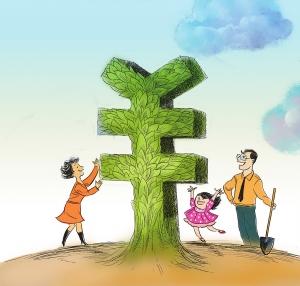Even with the recent runup in stocks, you still might have a larger-than-usual chunk of your assets in bonds these days, because bonds did well last year and have remained solid this year. If that's the case, rebalancing toward stocks makes sense, especially with their prices so low.
即便是在最近股市上扬的情况下,你目前所持有的债券占你总资产的比例或许仍高于通常水平,因为债券去年表现不错,今年也依然强劲。如果是这种情况,那么多持有一些股票是有意义的,特别是在股价如此之低的时候。

Preserve What You Have
保护已有的收益
One of the lessons of the past few years is that the stock market and your home are not ATMs. They are assets that can rise and fall. Having a strategy to preserve your gains is prudent in these challenging times.
过去几年的教训之一是,股市和你的房子不是自动取款机, 而是价值可涨可跌的资产。在当前这个充满挑战的时期,拥有一个保护已有收益的战略是谨慎的做法。
Along with diversification of assets-stocks, bonds, cash-maintain diversification in the stock market, as well. Buy broad, low-fee index funds, rather than individual stocks, to lower your exposure to risk.
除资产投资分散化(股票、债券和现金)外,股市投资也要 保持分散化。买进大范围的低成本指数基金,而不要买某只个股,以减小风险敞口。
And maintain a rainy-day fund in safer places, such as TIPS, certificates of deposit or highly rated municipal or corporate bonds. A good rule of thumb is to have a reserve of six months' earnings in case of a job loss.
把以防万一的资金放在比较安全的投资上,比如通货膨胀 保值债券、定期存单,或评级较高的市政债券或公司债券。留出一笔相当于6个月收入的备用金,万一失业就可以派上用场,这是个不错的经验总结。












